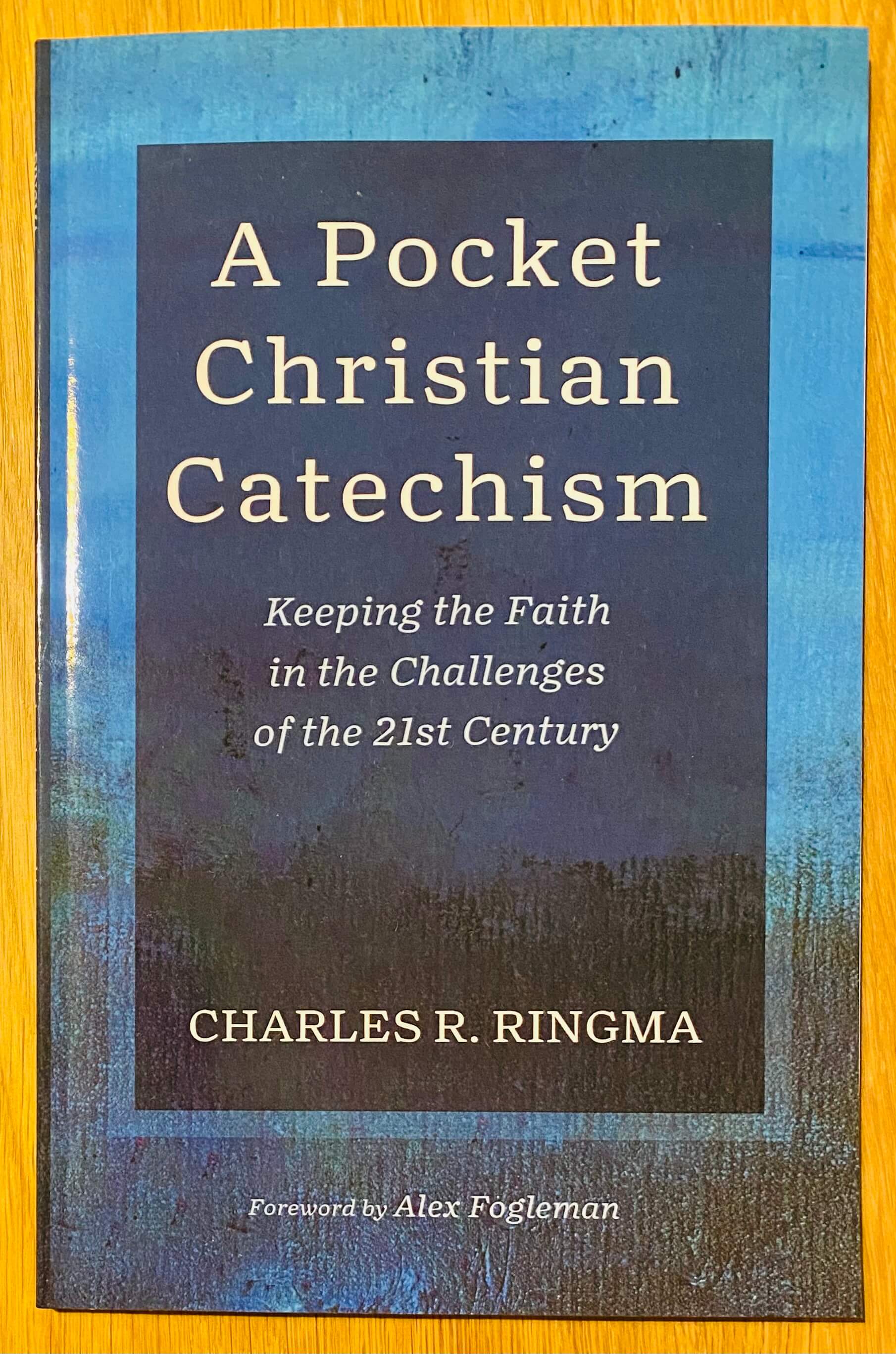Review essay: A Pocket Christian Catechism: Keeping the Faith in the Challenges of the 21st Century
Tuesday, 18 June 2024
| Paul Tyson

A Pocket Christian Catechism: Keeping the Faith in the Challenges of the 21st Century
By Charles Ringma
(Eugene, OR: Resource Publications, 2024)
Catechism – from the Greek kata ‘against’ and ekheo ‘sound’ – refers to the ancient Greek oral teaching method where words would be memorised by repetition, by the student ‘re-sounding’ the words spoken by the teacher. It is a spoken-word mode of learning.
In our visual learning culture, catechesis is an increasingly strange and foreign idea. I am old enough to have learnt my multiplication tables by this catechetical method wherein the whole class would chant out the times tables until they were fixed in our brains – like a song – and available for immediate recall. By contrast, my children were equipped with calculators in primary school and did not learn their times tables orally (and did not, in fact, learn their times tables at school).
I wish to suggest that Charles Ringma’s Pocket Christian Catechism should be read and learnt out loud. For people over 50 such as myself, there is nothing new or unknown in this careful selection of important Christian truths – selected from scripture, creeds, hymns, prayers, catechisms, doxologies and liturgies. But I grew up in an era where we still sung hymns, still read the Scripture out-loud daily in our homes, still recited the creed each Sunday, still memorised slabs of scripture and some of us even learnt doctrinal catechisms as children. Increasingly, this is not the experience of children today. Could it be that the absence of oral learning for children in the doctrinal truths and liturgical forms of Christian worship is a significant obstacle to keeping the faith in the 21st century?
Schooling is now about being able to find what you want to know for a particular (often hoop-jumping) purpose, rather than the slow work of memorisation, rather than having an inner store of solidly learnt and carefully understood truths to anchor your mind and enable your independent and first-order thinking. And we work with the images, with the virtual, with data, with the graphs and bullets of superficial power-point presentation in a context of immediate visual stimulation which Jacques Ellul has called ‘the humiliation of the Word’. We now have smart phones and search engines. We are now algorithmic and AI enhanced thinkers, and screens, screens, screens are the continuous interface that our minds now need in order to think at all. This is no exaggeration.
Ten years ago, the neuroscientist Susan Greenfield published a disturbing book titled Mind Change: How digital technologies are leaving their mark on our brains. The situation is distressingly simple. Our mental capabilities (and particularly children’s) are astonishingly adaptable, which neuroscientists call ‘brain plasticity’. This means not only do we adapt to different learning environments, but we readily become dependent on ‘aids’ to our thinking, particularly if those aids are visually stimulating and functionally replace our memory, such as screens and iPhones are doing. Is this making us smarter? Yes and no. Rapid system mastering thinking has never been easier, and catch and trawl information processing has never been more accessible. But what about really knowing foundational truths intimately and internally? What about wisdom? What about first-order understanding? We are losing that, and perhaps not accidentally.
What is happening to our faith when we do not have the Scripture and solid foundational doctrine orally locked into our minds by memory, by wise instruction and by communal recitation? What is happening to the Christian faith in the 21st century under the conditions of a highly visual, extraneous and retrieval-based intelligence that is profoundly technologically dependent? And now that our very brains are dependent on our information technologies, who is shaping those technologies (and our very thoughts) and to what end? I don’t mean to sound conspiratorial here, but Google’s algorithm has a brutally pragmatic commercial telos, and the less we notice it the more powerful it is. Our very minds are being transformed into stimulus- and response-driven consumption engines that are ever brilliantly primed for attention stimulation and commercial harvesting. But what is this commercially driven ‘mind change’ doing to our spirits, our society, our sense of meaning and purpose, our understanding of human flourishing, our relationship to our Creator and to creation?
Charles Ringma’s pocket catechism seeks to re-centre our minds on the deep foundational truths of Christian faith, prayer and worship. The short texts chosen for this purpose are deep and time-tested Christian truths. There is a bit of work to be done to enter into their truth, and it is slow and oral work, and it is best done when texts are memorised and properly internalised. This runs deeply counter to the spirit of our times. Yet reading through these solid and grounding Christian truths is refreshing to the soul and transformative for the mind. This is a profoundly necessary act of resistance against the erosion of deep and intelligent faith. How can we be faithful to the faith we have received without this sort of catechetical work?
Paul Tyson is an Honorary Senior Fellow in the School of Historical and Philosophical Inquiry at the University of Queensland.